Premium Only Content
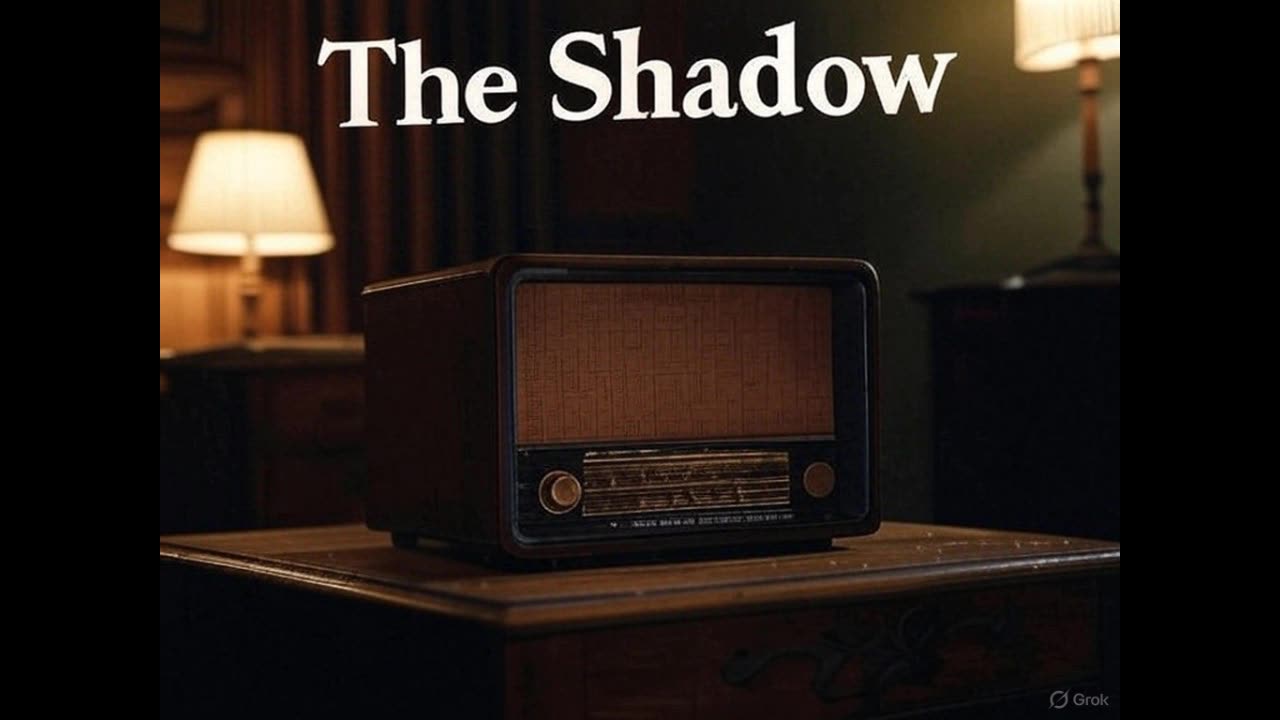
The Shadow: The White God (May 1, 1938)
Setting: An exotic, possibly tropical or South American island, with scenes in dense jungles, a volcanic landscape, or a native village, contrasted with urban settings like a ship or a city office. The episode uses sound effects such as jungle drums, howling winds, volcanic rumbles, and gunfire to create a vivid, adventurous atmosphere, evoking the pulp-inspired exoticism of the era.
Plot:
Introduction: The episode opens with the iconic line, “Who knows what evil lurks in the hearts of men? The Shadow knows!” delivered by Orson Welles, followed by his sinister laugh. The narrator sets the stage, introducing The Shadow, a crimefighter with the ability to “cloud men’s minds,” embarking on a perilous mission to a remote island.
The Premise: The story revolves around a mysterious figure known as the “White God,” likely a charismatic or ruthless outsider posing as a deity to exploit a native tribe on a volcanic island. The villain’s scheme might involve plundering the island’s resources (e.g., gold, gems, or a rare mineral) or manipulating the natives for power, using fear and superstition. The episode could begin with a dramatic scene of a native ritual, interrupted by the “White God’s” commands, with sound effects of drums and chanting.
The Shadow’s Involvement: Lamont Cranston, as The Shadow, learns of the situation, possibly through Margot Lane or a contact like a ship captain or a scientist studying the island. The crisis might stem from a distress call, a missing expedition, or reports of a volcanic threat tied to the villain’s actions. The Shadow and Margot travel to the island, with scenes on a ship or in a jungle, where they encounter hostile natives or the villain’s henchmen. Using his invisibility and hypnotic powers, The Shadow infiltrates the tribe or the villain’s stronghold to uncover the truth.
Confronting the White God: The investigation reveals the “White God” as a fraud, possibly a disgraced explorer, criminal, or scientist exploiting the natives’ belief in a volcanic deity. The villain might control the tribe through staged “miracles” (e.g., pyrotechnics or a rigged volcanic eruption) or threats of divine wrath. The Shadow thwarts the scheme, using his mental powers to sow doubt among the natives or turn the henchmen against their leader. Action sequences include jungle chases, fistfights, or a race against a volcanic eruption, with sound effects like roaring lava, breaking branches, or gunfire.
Climax and Resolution: The climax features The Shadow exposing the “White God” in a dramatic confrontation, possibly during a tribal ceremony or as the volcano threatens to erupt. The villain’s deception collapses, and they are either apprehended, killed by the natives, or consumed by the island’s natural forces. The Shadow ensures the tribe’s safety, possibly with Margot’s help in calming the natives or aiding survivors. The episode likely ends with The Shadow and Margot reflecting on the dangers of false gods, followed by the closing line, “The weed of crime bears bitter fruit. Crime does not pay! The Shadow knows!” and Welles’s haunting laugh.
Themes: The exploitation of superstition, the clash between civilization and indigenous cultures, and the triumph of justice over greed. The episode reflects 1930s pulp adventure tropes, with The Shadow as a heroic outsider dismantling colonial-style villainy.
Cast and Roles:
The Shadow/Lamont Cranston: Played by Orson Welles, delivering a dual performance—suave as Cranston, commanding as The Shadow. Welles’s rich voice enhances the character’s hypnotic powers and authority, particularly in scenes confronting the villain or natives.
Margot Lane: Played by Margot Stevenson, portraying Cranston’s “friend and companion” and crime-solving partner. Stevenson’s warm, courageous performance likely sees Margot navigating the island’s dangers, possibly interacting with natives or outwitting henchmen.
The White God (Villain): An unnamed actor, voicing a charismatic but sinister figure with a grandiose, manipulative tone, evoking a god-like presence undercut by greed.
Supporting Characters:
Native Chief or Priest: An unnamed actor, portraying a tribal leader with a mix of dignity and fear, possibly swayed by or suspicious of the “White God.”
Henchmen: Unnamed actors, playing the villain’s brutal accomplices with gruff, aggressive voices, typical of The Shadow’s thug archetypes.
Minor Roles: A ship captain, a scientist, or native villagers, voiced by the ensemble to add depth to the exotic setting, with colorful or accented performances.
Narrator/Announcer: Likely Frank Readick or another Mutual announcer, delivering the opening and closing lines, though Welles may handle The Shadow’s signature phrases. The announcer also reads the B.F. Goodrich Tires sponsor message.
Note on Cast: The Shadow credited only stars like Welles and Stevenson, with supporting roles filled by versatile radio actors, often unlisted, per sources like otrcat.com. The ensemble’s performances, heightened for adventure, bring the jungle and villainy to life.
Production Details:
Music: An organ-driven theme, likely composed by Rosa Rio, opens and closes the episode, with dramatic stings accentuating action or suspense. Jungle drums or eerie motifs may enhance the exotic setting, typical of The Shadow’s soundscape.
Writer: Likely Arch Oboler or a staff writer under Walter B. Gibson’s supervision, adapting pulp magazine themes to emphasize The Shadow’s mental powers and exotic adventures.
Director: Not explicitly credited, but likely overseen by Mutual’s production team, ensuring the fast-paced, thrilling pacing.
Sound Effects: Essential to the episode, including jungle drums, volcanic rumbles, wind, chanting, gunfire, and footsteps, creating a vivid tropical and perilous atmosphere. The Shadow’s invisibility is suggested through vocal filters or sudden silences.
Sponsor: B.F. Goodrich Tires, with a commercial break promoting tire safety, typical of the 1938 summer season.
World and National Events Around May 1, 1938:
To provide context for the broadcast, here are key world and national events occurring in late April and early May 1938, reflecting the global and domestic climate that shaped listeners’ perspectives:
World Events:
German Annexation of Austria (Anschluss): Following Nazi Germany’s annexation of Austria on March 11–13, 1938, the April 10 referendum solidified the Anschluss, integrating Austria into the Third Reich. By May, anti-Jewish policies intensified, with forced emigration and property seizures in Vienna, raising alarms in U.S. media about Hitler’s expansionist ambitions and the threat of war.
Spanish Civil War: The Spanish Civil War saw Franco’s Nationalist forces advancing. In April, the Aragon Offensive and Battle of Gandesa strengthened their position, and by early May, Nationalists were pushing toward the Mediterranean, splitting Republican territory. Italian air raids and Vatican support for Franco heightened global tensions, with U.S. audiences divided over neutrality versus intervention.
Japanese Invasion of China: The Second Sino-Japanese War continued, with Japan consolidating control after the Battle of Taierzhuang (March–April 1938). In early May, Japan launched further offensives, alarming Americans concerned about Pacific stability and trade, as reported in newspapers.
Sudetenland Crisis: The Sudetenland issue escalated, with Sudeten Germans demanding autonomy on April 23, backed by Hitler. By May, diplomatic talks between Britain, France, and Czechoslovakia intensified, foreshadowing the Munich Agreement (September 1938). U.S. radio and print media covered these developments, fueling fears of a European war.
National Events:
March of Dimes Fundraising: Launched on January 3, 1938, by President Franklin D. Roosevelt, the National Foundation for Infantile Paralysis (March of Dimes) was actively raising funds in May to combat polio. Radio campaigns, including Mutual Network appeals, engaged listeners, with public support growing for medical research.
Economic Struggles and New Deal: The 1937–38 recession kept unemployment high at 19%. In April and May, Congress debated the Fair Labor Standards Act, which would establish a 25-cent minimum wage and 44-hour workweek (passed in June 1938). Roosevelt’s New Deal programs, including public works, were prominent, with labor strikes reflecting economic discontent.
Superman’s Debut: Action Comics #1 (cover-dated June 1938, published in April) introduced Superman, created by Jerry Siegel and Joe Shuster. By May, the comic was gaining traction, marking the superhero genre’s birth and influencing pulp-inspired radio shows like The Shadow.
Sports and Culture: On April 1, Joe Louis defended his heavyweight boxing title, and in early May, the Kentucky Derby (May 7) saw Lawrin win, boosting national morale. The film Test Pilot (released April 22), starring Clark Gable, was a box-office hit, reflecting Hollywood’s growing influence, while radio remained a dominant medium for entertainment.
-
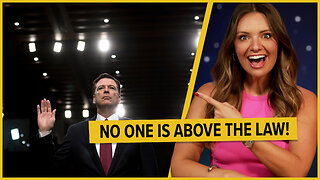 1:00:55
1:00:55
BonginoReport
4 hours agoJames Comey Indicted! - Nightly Scroll w/ Hayley Caronia (Ep.143)
112K51 -
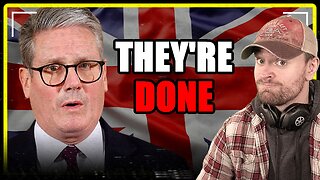 LIVE
LIVE
MattMorseTV
1 hour ago🔴The UK just hit ROCK BOTTOM.🔴
746 watching -
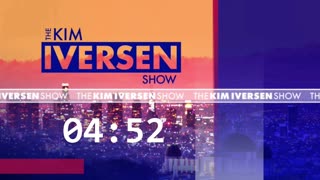 1:20:26
1:20:26
Kim Iversen
3 hours agoThis Intel Analyst Has Accurately Predicted Putin's Every Move... Is War With NATO Next?
98.7K24 -
 LIVE
LIVE
SpartakusLIVE
55 minutes ago#1 HERO of the PEOPLE || Ending the Week with FUN, WINS, and LAUGHS
113 watching -
 LIVE
LIVE
The Jimmy Dore Show
3 hours agoIn Undercover Video DOJ Investigator ADMITS Epstein Was CIA! UK Pushing COMPULSORY Digital ID!
8,815 watching -
 LIVE
LIVE
GritsGG
10 hours agoQuad Win Streaks!🫡 Most Wins in WORLD! 3600+
101 watching -
 2:34:12
2:34:12
Spartan
3 hours agoScrims vs Mindfreak and then Ranked or another game idk
161 -
 1:35:57
1:35:57
Roseanne Barr
5 hours agoEnd-Time Prophecies REVEALED: Jonathan Cahn’s Warning
130K47 -
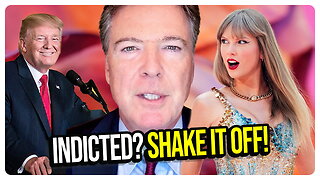 1:08:58
1:08:58
vivafrei
6 hours agoComey INDICTED! Proof Jan. 6 was a FED-SURRECTION! Ostrich Crisis Getting More Attention & MORE!
140K94 -
 LIVE
LIVE
StevieTLIVE
1 hour agoBirthday Bash HYPE Warzone Wins ALL NIGHT
14 watching